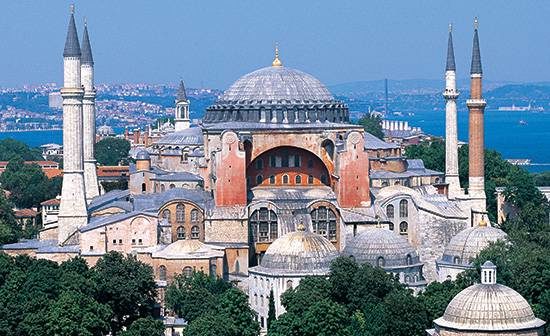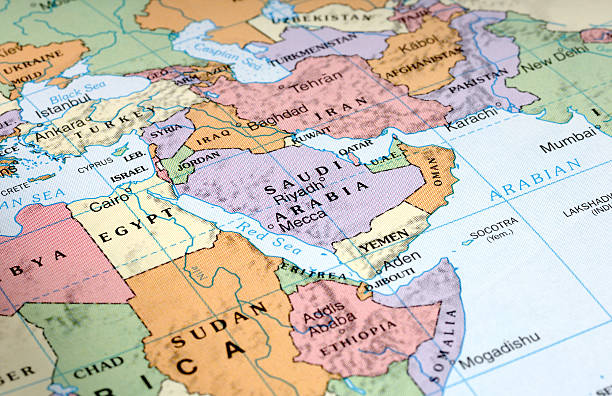
The end of the Cold War raised hopes for a more peaceful and stable world with the “international community” collectively confronting global challenges. This proved a myth. After three decades, all we hear now is Cold War II, which essentially means that world’s major powers have failed to redefine their self-centered foreign and security policy priorities and their relationships.
President Putin has ruled over Russia for two decades. Although much has been said on Mr. Putin’s unpredictability, he has remained on a steady course in restoring Russia’s global status as a major power. The Georgian and Ukrainian conflicts which were mishandled by their leaders and the West showed that further NATO/EU expansion towards the east would come at a cost. As for the Russian intervention in Syria, the country has been a friend of Moscow for decades and there was no way President Putin could let the regime down.
Mr. Putin gave an interview to the Italian newspaper «Il Corriere della Sera» on June 6, 2015. During the interview, the worries of NATO countries such as the Baltic states and Poland were raised and he was asked whether the West is right in its determination to restrain “the Russian bear”, and why Russia continues to speak in contentious tones. He said:
“… US military spending is higher than that of all countries in the world taken together. The aggregate military spending of NATO countries is 10 times, note – 10 times higher than that of the Russian Federation. Russia has virtually no bases abroad…
“I invite you to publish the world map in your newspaper and to mark all the US military bases on it. You will see the difference.”
Indeed, there is a difference. Nonetheless, the Baltic states and Poland cannot be blamed for not finding President Putin’s assurances entirely adequate. Because, the region has a history and they need more time.
China, while rising as a global economic power, has refrained from getting involved in international conflicts and has remained principled and predictable by current international standards. China, which does not have a record of military interventions abroad. On the contrary, it was the target of Western and Japanese aggression for a century.
In brief, neither Russia nor China is a democracy, but they are both reasonably predictable by today’s standards, perhaps not always in ways desired by the West. Whether we like it or not, they too have their Monroe doctrines. And, three major powers’ inability to make decisive interventions in the immediate periphery of the other two is today’s reality.
9/11 created a wave of global support for the US. This was a great opportunity for Washington to pivot from emphasis on military supremacy to a more constructive global leadership promoting multilateralism. Unfortunately, Afghanistan, Iraq and Libya interventions and participation in Syria’s proxy war squandered that opportunity. Domestic support for “endless wars” declined. Uncontrolled capitalist order started to show its flaws. Income inequality continued to grow. This led to a wave of populism a leadership crisis. America’s attachment to its international commitments became questionable. Relations with transatlantic allies were strained. Then came coronavirus with a staggering death toll. Unemployment which had been at the lowest level of the last four decades has gone up. Washington’s Hong Kong rhetoric gave the impression of being a diversion. The murder of George Floyd led to mayhem. Racism and police violence overtook everything else to the delight of leaders in Beijing and Moscow.
The US still world’s leading economic and military power. The question seems to be “for how long?” Because, its domestic politics are dysfunctional. Partisanship and extreme polarization are on the rise. And, there is no leader in sight to chart a new course.
The repercussions of George Floyd’s murder have now transcended the borders of the US. Winston Churchill’s granddaughter said his statue may have to be put in a museum to protect it if demonstrations continue. Emma Soames told the BBC she said she was “shocked” to see the monument in London’s Parliament Square boarded up, although she said she understood why this was necessary.
Perhaps this is the day of reckoning for the West, the time to take a profound look at the enduring contradictions between its public discourse on democracy, respect for human rights and its colonial/imperial/interventionist past. Unless they do that, what some already call “democracy’s decline” will continue. Peoples of the Middle East have yearned for democracy for decades and decades. Witnessing the turmoil in the West may give them some satisfaction for historical reasons but many will eventually feel sad to see their hopes dashed to the satisfaction of regional autocrats. The West needs to put its act together so that this does not prove to be the case. They owe this to the Middle East.
As for Turkey, the government is once again on the wrong track. The world is in turmoil. The post–World War II global order is under stress to say the least. There is a pandemic. Our economy is in deep trouble. We have few friends, if any. We are polarized. Yet, the top item on our agenda is the status of the Hagia Sophia Museum in Istanbul, whether it should be opened to prayers or not. Could this be another domestic policy ploy? Quite possible. But in terms of Turkey’s international relations, the choice of topic could hardly be more counterproductive.
Ali Tuygan, Ambassador (Ret’d) and former Undersecretary of the Turkish Foreign Ministry. The article is also published on his blog https://diplomaticopinion.com/2020/06/15/the-day-of-reckoning/









